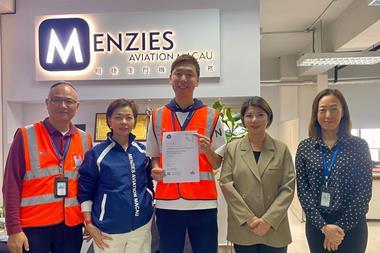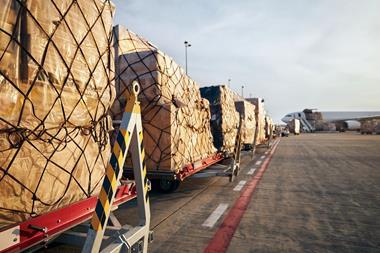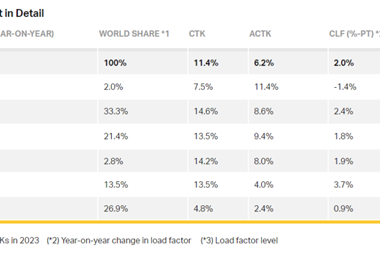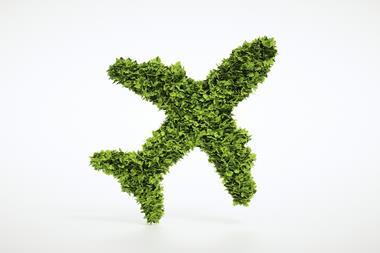Sustainability is air cargo’s license to grow. Shippers are becoming more environmentally conscious and held accountable for their emissions by their customers.
Many are reporting how much their supply chains produce in emissions and are looking for carbon-neutral transportation options.
Customer expectations for the highest standards of sustainability need to be met. Airlines are committed to achieve net-zero carbon emissions by 2050.
This commitment is aligned with the Paris Agreement goal for global warming not to exceed 1.5 degrees Celsius.
The strategy is to abate as much CO2 as possible from in-sector solutions such as sustainable aviation fuels (SAF), new aircraft technology, more efficient operations and infrastructure, and zero- emissions energy sources such as electric and hydrogen power.
Any emissions that cannot be eliminated at source will be eliminated through out-of-sector options such as carbon capture and storage and credible offsetting schemes.
The path from stabilising to reducing net emissions requires a collective effort. All industry stakeholders, across the supply chain as well as governments, must each take responsibility to address the environmental impact of their policies, products, and activities.
And they must work together to deliver sustainable connectivity and ultimately break aviation’s dependency on fossil fuels.
Re-fleeting
We are already seeing some interesting examples in air cargo. Firstly, in re-fleeting, where new aircraft replacing older aircraft significantly reduces fuel consumption, CO2 emissions and noise footprint; Atlas Air and DHL have all signed new aircraft contracts with Boeing.
And Lufthansa has announced that it is buying new aircraft to replace older ones in its fleet. The aircraft will also be heavily used for transporting cargo.
Cargolux has also announced that it will replace its old Boeing 747-400 fleet with new 777-8F models.
There has been some interest in electric aircraft too, with UPS planning to purchase up to 150 electric aircraft as an alternative to fixed-wing planes for time-sensitive deliveries, with the first 10 slated to arrive in 2024.
Similarly, DHL Express has ordered its first-ever all-electric cargo planes. Secondly, in SAF commitments, bp and Neste have committed to supplying DHL Express with more than 800m litres of SAF until 2026 and Lufthansa Cargo announced a purchase order of 1.8m tonnes of SAF from Shell.
Air France KLM Martinair Cargo will use SAF on selected cargo flights from Nairobi, Kenya, to Schiphol, Netherlands, carrying Total Touch Cargo Holland’s fresh agricultural and horticultural products.
And FedEx and DHL Express have committed to getting 30% of their jet fuel from alternative fuels by 2030.
Fry to Fly
Lufthansa Cargo also launched the Fry to Fly campaign, a slogan to promote SAF and step out of traditional kerosene burn. The airline highlights the fact that SAF can be obtained from recycled materials such as used frying oil or other organic residues.
Additionally, the third area where we are seeing industry progress is in the reduction in waste generated across the cargo supply chain.
Investing in efficient and sustainable management of single use plastics (SUP) is a global priority. LATAM Airlines pledged to eliminate all SUP by 2023, including cargo.
Reducing waste on perishable cargo is another area being tackled by the cargo industry. Cool Chain Association members have piloted a scheme to tackle food loss by sharing temperature data from perishable consignments moving from Latin America to the Middle East.
Partners for the pilot include Cargolux, Able Freight, Air France KLM, SmartCAE and Xtreme Technologies.
Sustainability will feature heavily at this year’s IATA’s WCS, with a day of discussions dedicated to the topic. The sustainability stream will not only feature what air cargo needs to do to keep innovating and transforming to achieve net-zero carbon emissions by 2050, but also what the sustainable cargo facility of the future looks like.
There will also be two sessions on pharma and e-commerce. Sustainability of the workforce and how we ensure there is sufficient talent to meet current and future requirements will also be discussed.
Join us at WCS to hear from a distinguished list of speakers from organisations including McKinsey, CargoAi, Menzies Aviation, ACL Airshop, DHL and Heathrow Airport, among others.















